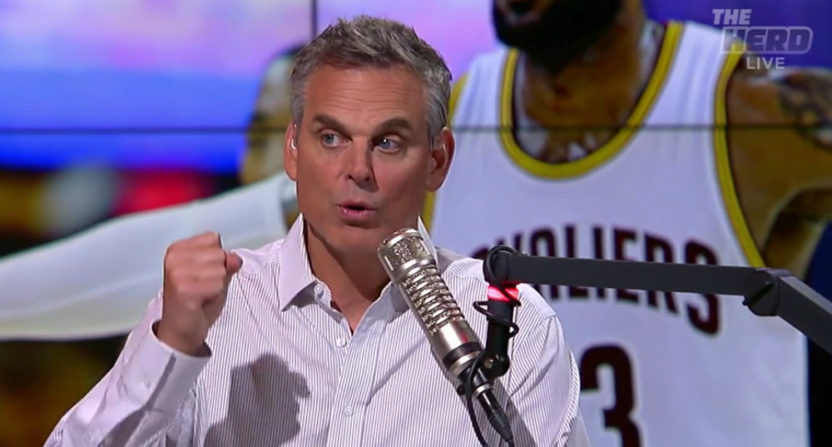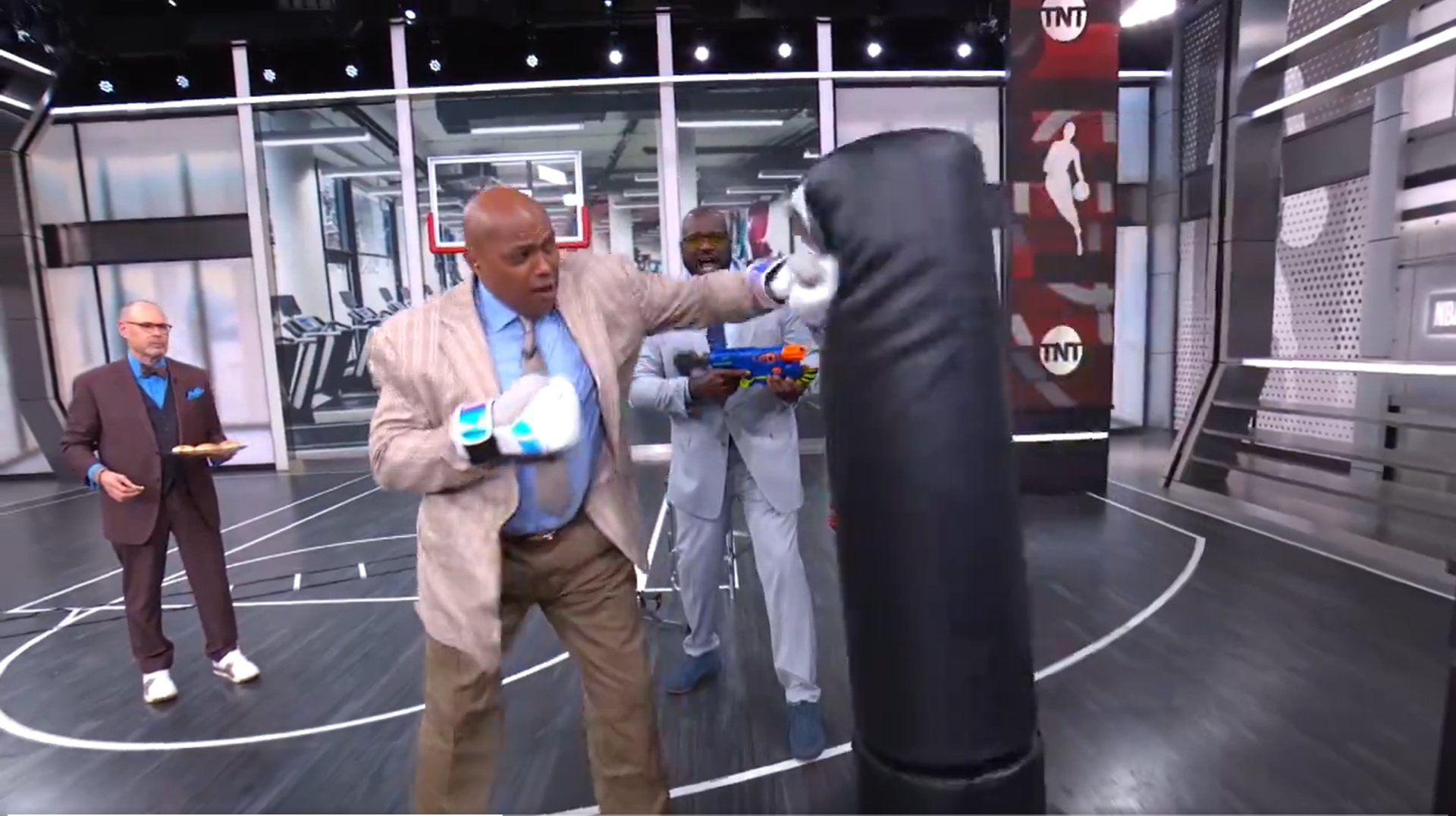As you have likely heard, the Seattle Seahawks are tearing down their once-vaunted defense, having traded Michael Bennett and now released Richard Sherman. And although it may seem that those moves were motivated by a desire to get younger and a need to move on from a memorable era that has run its course, Colin Cowherd is here to tell you otherwise.
In a five-and-a-half minute monologue on his Fox Sports Radio show Friday, Cowherd explained that the Seahawks’ new direction is actually proof that “political” teams cannot be successful.
Never mind that the Seahawks won a Super Bowl and reached another with Bennett, Sherman, Doug Baldwin and other outspoken stars onboard. Never mind that teams led by Steph Curry, LeBron James and Gregg Popovich have won the past six NBA titles. Never mind that the Philadelphia Eagles and their band of racial-justice activists won the Super Bowl five freaking weeks ago.
To Cowherd’s mind, “this is the NFL’s most tolerant and progressive team now admitting that whole political thing in the locker room doesn’t work.”
Cowherd, in his typical style, spent the anti-Seahawks segment Friday bouncing from subject to subject making spurious connections and moving on before bothering to explain them. He repeatedly compared the NFL to church. He suggested that because no one (in his 30 years of fame) had asked him about politics, clearly no one cares about politics. And he waved away Eagles standouts Malcolm Jenkins and Chris Long as if they were irrelevant to the conversation at hand.
Now there are some athletes — Chris Long, Malcolm Jenkins — who can delicately balance some politics in their life and their social-media account, and football. But for the three-and-a-half hours or the hour-and-a-half of practice, keep it to yourself.
Jenkins and Long, along with several of their teammates, protested during the national anthem, publicly lobbied on Capitol Hill and discussed racial justice during postgame press conferences. There was nothing particularly delicate about it. And at the end, they. won. the. Super. Bowl.
When Cowherd wasn’t snidely dismissing the irrefutable counter-example to his point, he was turning the whole thing into a diatribe about the big, bad media, complete with a dig at ESPN’s SC6.
See, the reason the media — and I’ve seen this happen to colleagues, their shows implode, SportsCenter 6, their careers implode, I won’t mention several people’s names — is because you feel empowered by social media, which tells you more politics.
After explaining just how many people stop him in public to ask his sports opinions, he declared that no one ever asks him about politics and that therefore everyone in sports should “zip it.”
This is why the trust in the media in America has plummeted over the past decade. The media is trying to convince you things that we know aren’t true. We know you shouldn’t talk politics at church or at Thanksgiving. We know you shouldn’t talk politics at work or in locker rooms. Stop trying to convince me it’s awesome for sports.
Seriously, what media is Colin Cowherd watching, reading or listening to that demands he talk about politics at work and church? Is that a cable-news talking point these days? Americans distrust the media for any number of reasons. Being told when to talk about politics in everyday life is almost certainly not one of them.
The latest
Cowherd next brought up UCLA quarterback Josh Rosen, who has reportedly drawn skepticism from NFL teams for his humanitarianism and political opinions.
I’ve talked to two NFL personnel people. There is absolute concern he could go political. He’s quarterback and smart and could engage lots of players. And there are two teams that have said, we’re going to pass on that.
Instead of questioning why NFL decision-makers would hold political opinions against a talented athlete, Cowherd uses their grumbles as evidence that politics-in-sports doesn’t “work.” As if political outspokenness held back Bill Russell, LeBron James, Muhammad Ali, Kareem Abdul-Jabbar or any number of proudly political athletes. As if, again, it held back the Eagles on the way to the Lombardi Trophy just last month.
At the center of Cowherd’s senseless monologue is a self-aggrandizing belief that because he has cultivated a reputation as someone who avoids politics (or simply couches his politics in amateur sociology), therefore everyone in sports, from Jemele Hill to Michael Bennett, should follow his lead and avoid politics. You know, lest they use their influence to make the world a more fair place.
Look, the #sticktosports argument is not new, and it’s not original. It has been litigated many times over. But for Cowherd to use that ideology to argue that teams with social consciousness can’t be successful, in the face of obvious evidence to the contrary, is lazy and dishonest.
It’s not speaking truth to power, it’s telling people what they want to hear without any regard for logic or reason. It is, to put it bluntly, bad radio.







